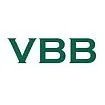In two recent orders, the European Court of Justice ("ECJ") has reaffirmed the principles governing the liability of parent companies for the conduct of their wholly-owned subsidiaries, as established in Akzo Nobel (see VBB on Competition Law, Volume 2009, No. 9, available at www.vbb.com).
In the first order issued on 2 February 2012, the ECJ dismissed an appeal by Elf Aquitaine against an earlier judgment by the General Court upholding fines totalling € 59 million imposed by the European Commission jointly and severally on Elf Aquitaine and its subsidiary Arkema France in connection with the latter's involvement in the sodium chlorate cartel.
In its June 2008 decision, the Commission had fined four groups of sodium chlorate producers a total of € 79 million for their involvement in market sharing and other anti-competitive activities between 1994 and 2000 in violation of Article 101 TFEU (see VBB on Competition Law, Volume 2008, No. 6, available at www.vbb.com). Elf Aquitaine and Arkema France, which were held jointly liable for € 22.7 million in fines subsequently appealed to the General Court to quash the Commission's decision.
In May 2011, the General Court upheld the Commission's decision, rejecting Elf Aquitaine's and Arkema France's arguments (see VBB on Competition Law, Volume 2011, No. 5, available at www.vbb.com). At the heart of the appeal was the question of under what circumstances a parent company can be held liable for the conduct of its wholly-owned subsidiary. In accordance with established case law, the General Court recalled that there is a rebuttable presumption that a subsidiary which is wholly owned by its parent company does not freely determine its own conduct on the market. The Court held that this principle equally applies in cases where a parent company owns almost all of the share capital of its subsidiary. On the facts, the General Court considered that in so far as Elf Aquitaine owned over 97% of Arkema France's shares and was unable to rebut the presumption that it exercised a decisive influence over its subsidiary, the Commission had not been wrong to impute liability for Arkema France's illegal conduct to Elf Aquitaine. Elf Aquitaine appealed before the ECJ.
In its order dismissing the appeal, the ECJ flatly rejected Elf Aquitaine arguments that it was not liable for the anti-competitive conduct of Arkema France, and declined to schedule a hearing on the grounds that the appeal was, in part, manifestly inadmissible, and in part, manifestly unfounded.
In its second order, issued on 7 February 2012, the ECJ dismissed an appeal by Total and Elf Aquitaine against a judgment by the General Court which confirmed their liability for the participation of Arkema in the acrylic glass cartel.
In May 2006, the Commission had found Arkema and its direct and indirect parent companies, Elf Aquitaine and Total, liable of having participated between 1997 and 2002 in a cartel in the acrylic glass sector (see VBB on Competition Law, Volume 2006, No. 5, available at www.vbb.com). According to the Commission, Arkema had engaged, along with other companies, in anti-competitive practices including price-fixing and exchanges of commercially sensitive information. Consequently, the Commission imposed on Arkema a fine of € 219.1 million. Total, which was the ultimate parent company of the group from 2000 until the end of the infringement (and was therefore the indirect parent of Arkema), was held jointly and severally liable for the payment of part of Arkema's fine. As for Elf Aquitaine, which directly held more than 96% of Arkema's share capital throughout the duration of the infringement, it was held jointly and severally liable for the payment of Arkema's fine.
In a subsequent appeal before the General Court, Arkema's fine was reduced but the two parent companies' ultimate responsibility for the cartel was upheld (see VBB on Competition Law, Volume 2011, No. 6, available at www.vbb.com). Specifically, the General Court recalled the rebuttable presumption that a subsidiary which is wholly owned by a parent company does not decide independently of its market conduct. On the facts, the General Court considered that the parent companies had adduced insufficient evidence to rebut this presumption. Total and Elf Aquitaine appealed to the ECJ.
The ECJ's order in this case upholds the General Court's findings on the grounds that the appellants' arguments are, in part, manifestly inadmissible, and in part, manifestly unfounded. It also reaffirms the well-established principle that parent companies are liable for the conduct of (former) subsidiaries, and rejects the appellants' claims that the EU antitrust enforcement system breached their fundamental rights.
The content of this article is intended to provide a general guide to the subject matter. Specialist advice should be sought about your specific circumstances.

